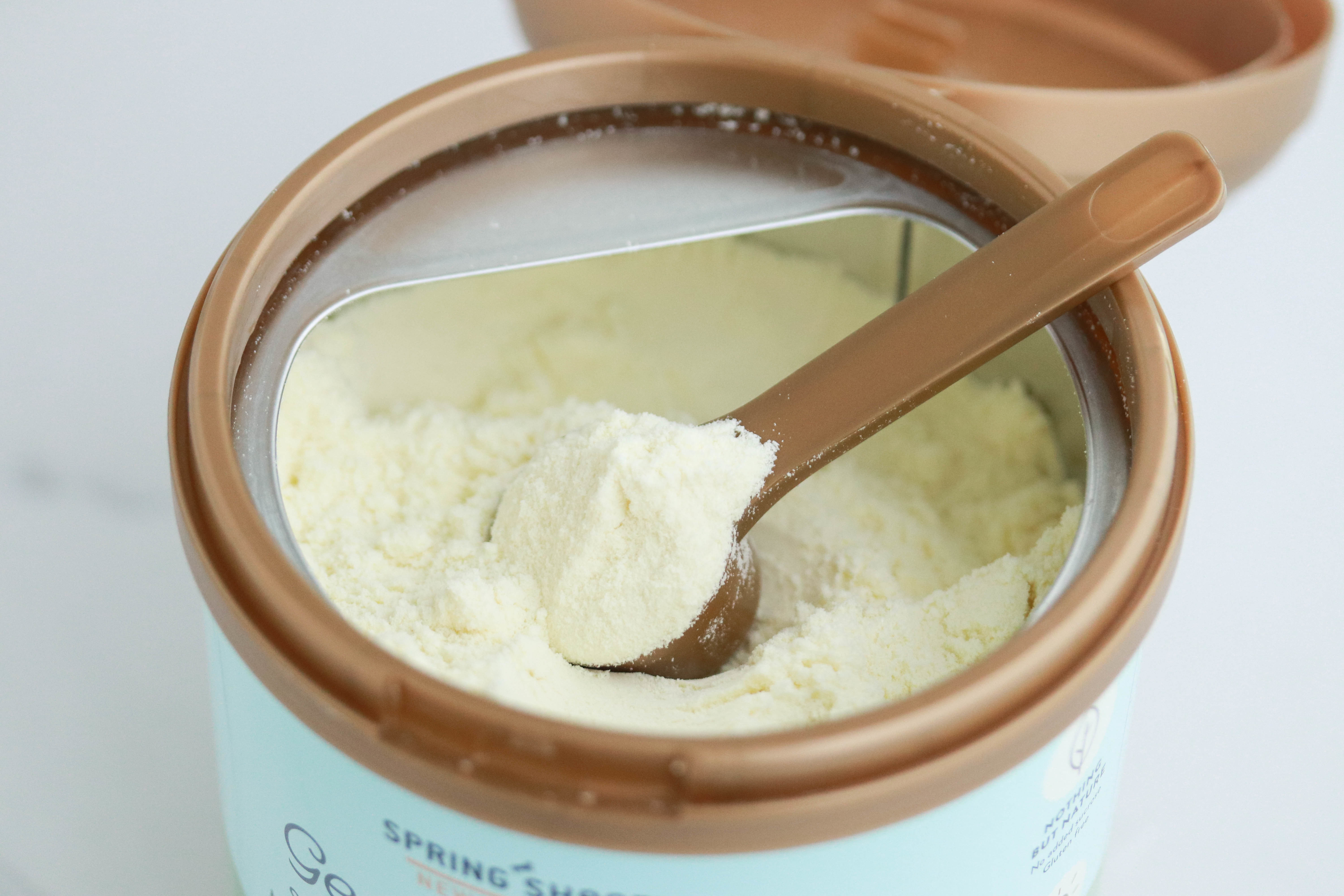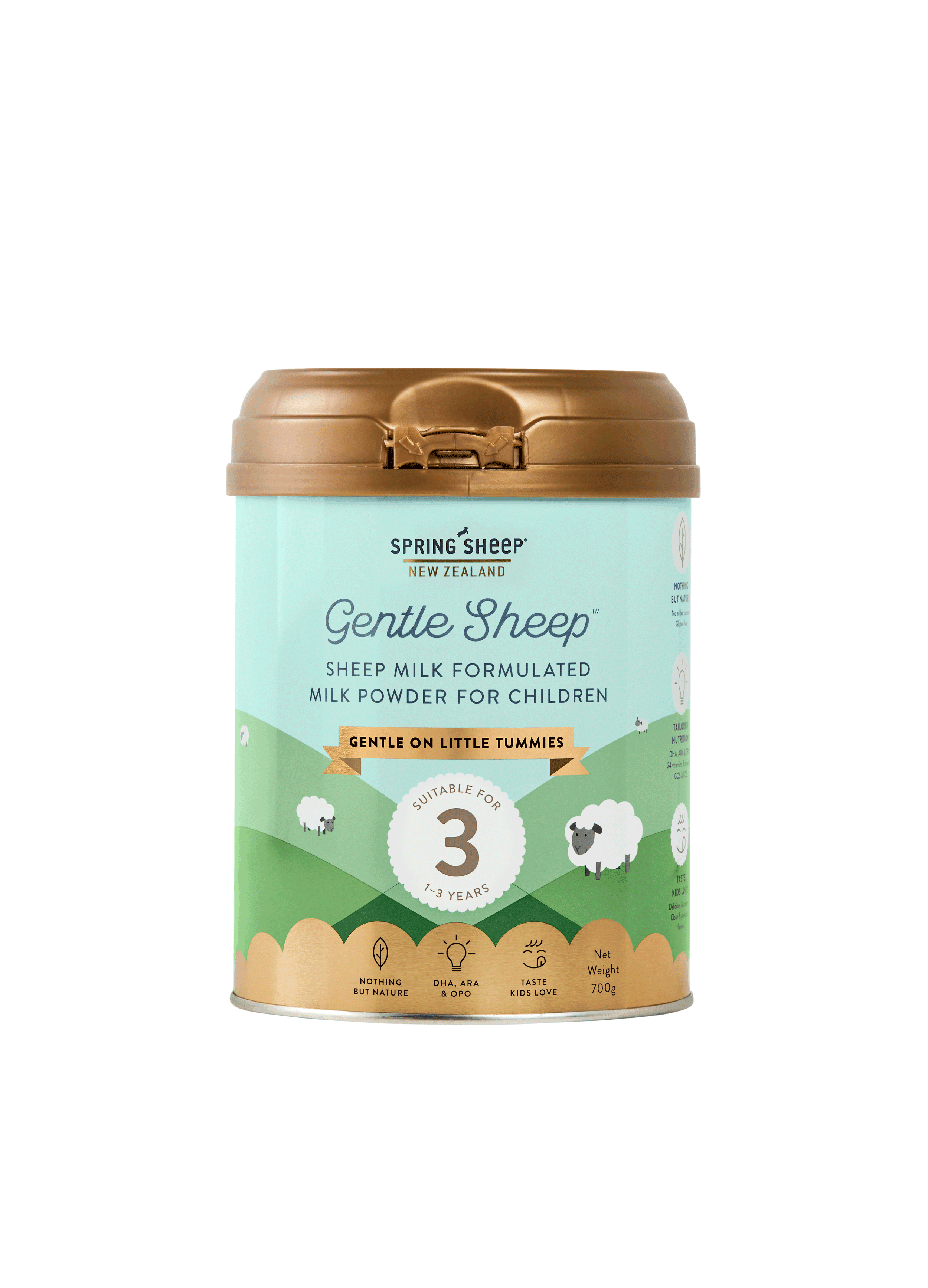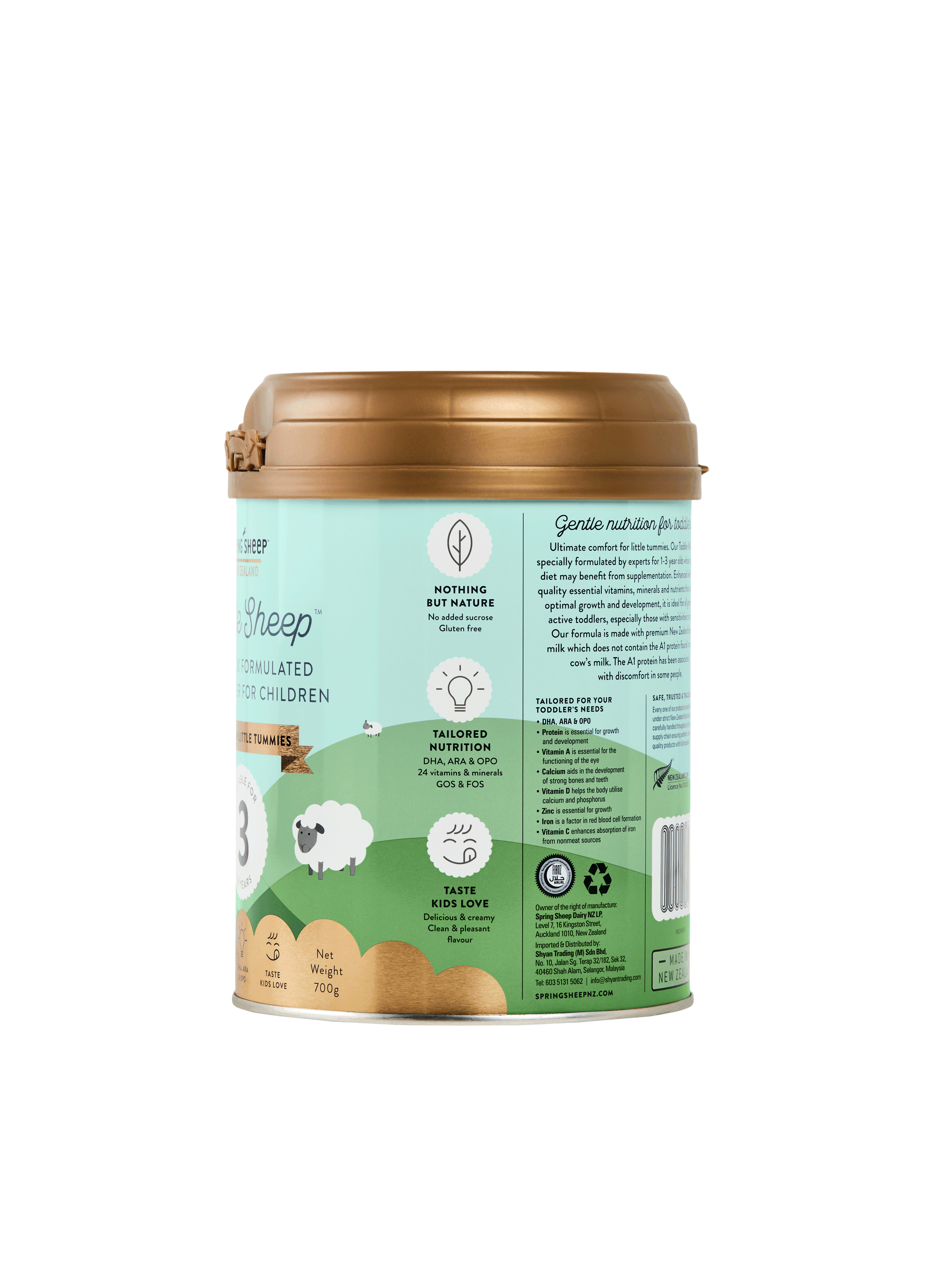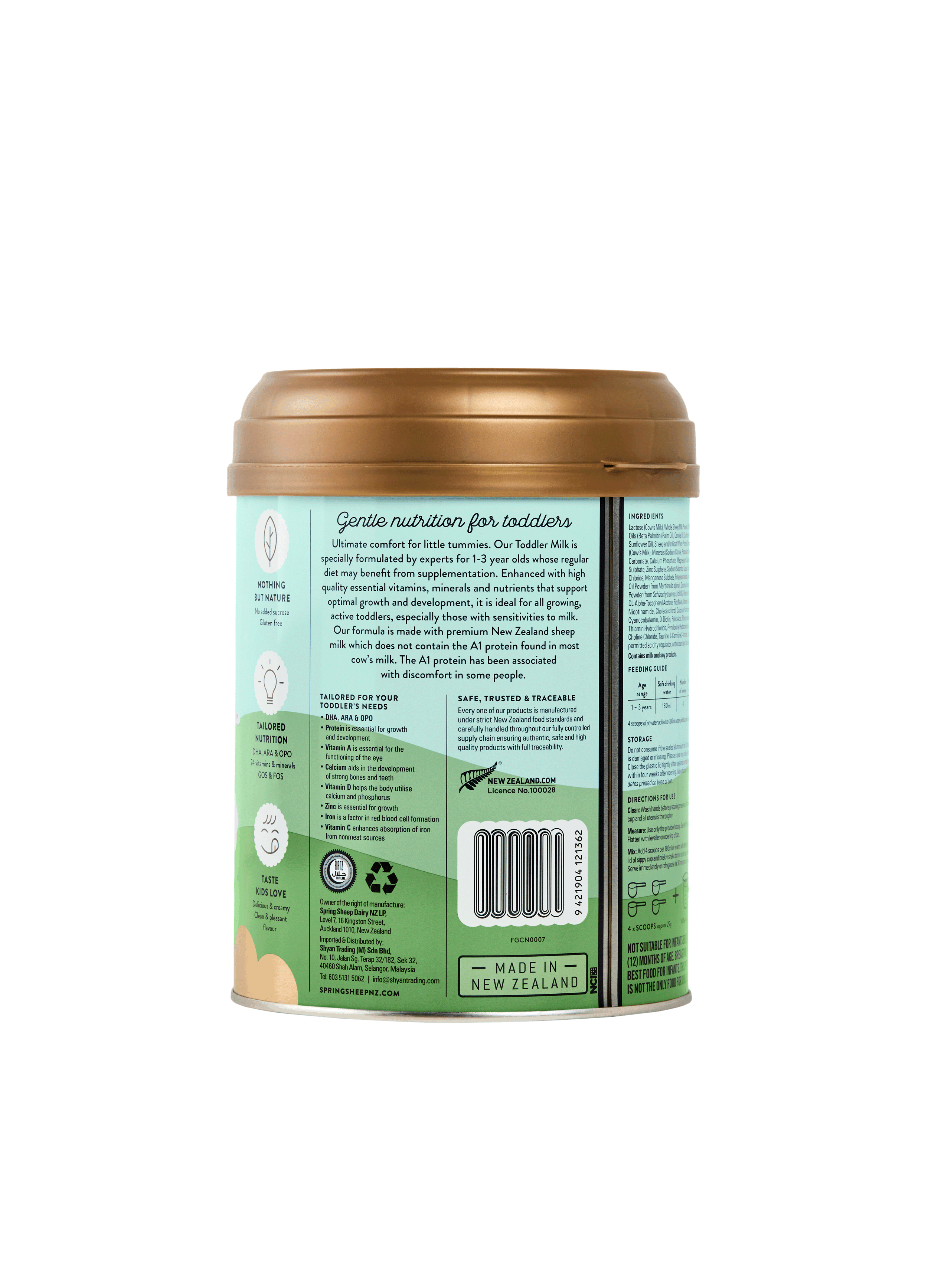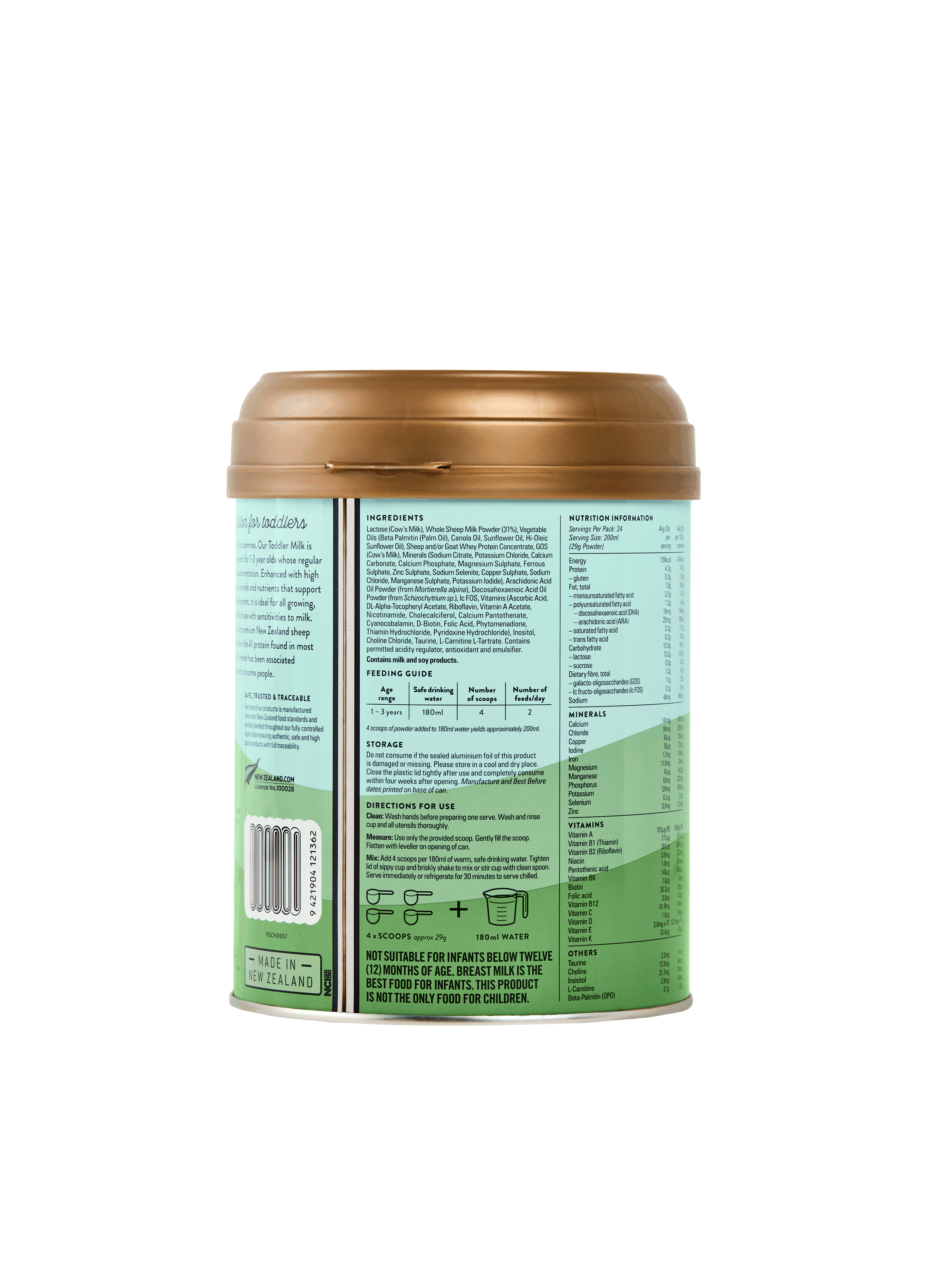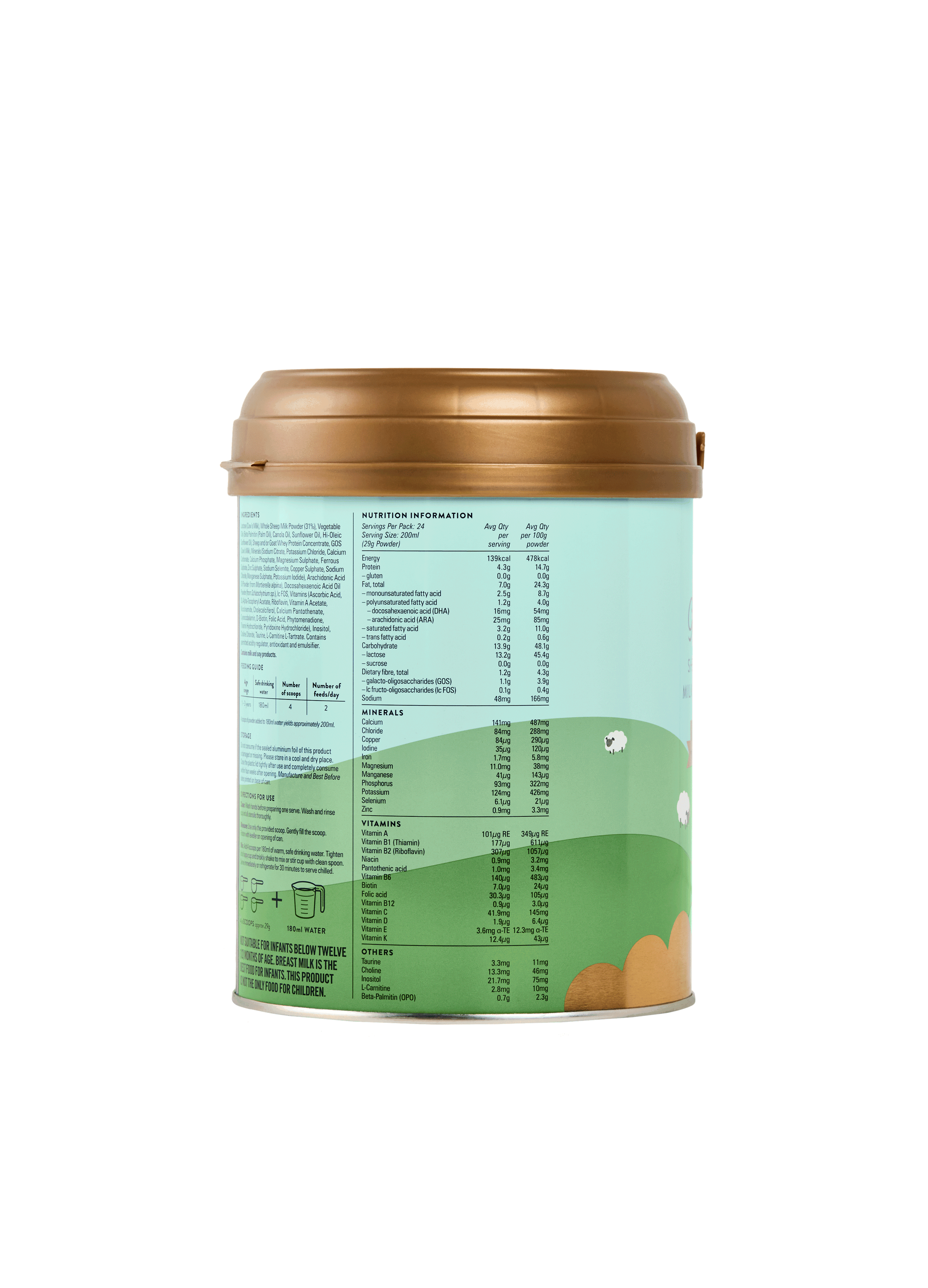Scientific References: Balthazar, C. F., Pimentel, T. C., Ferrão, L. L., Almada, C. N., Santillo, A., Albenzio, M., ... & Freitas, M. Q. (2017). Sheep Milk: Physicochemical Characteristics and Relevance for Functional Food Development. Comprehensive Reviews in Food Science and Food Safety. Haenlein, G. F., & Wendorff, W. L. (2006). Sheep milk. Handbook of milk of non-bovine mammals, 137-194. Https://advancedlipids.com/ Jianqin, S., Leiming, X., Lu, X., Yelland, G. W., Ni, J., & Clarke, A. J. (2016). Effects of milk containing only A2 beta casein versus milk containing both A1 and A2 beta casein proteins on gastrointestinal physiology, symptoms of discomfort, and cognitive behavior of people with self-reported intolerance to traditional cows’ milk. Nutrition Journal, 15(1), 35. Park, Y. W., Juárez, M., Ramos, M., & Haenlein, G. F. W. (2007). Physico-chemical characteristics of goat and sheep milk. Small ruminant research, 68(1), 88-113. Raynal-Ljutovac, K., Lagriffoul, G., Paccard, P., Guillet, I., & Chilliard, Y. (2008). Composition of goat and sheep milk products: An update. Small ruminant research, 79(1), 57-72. Selvaggi, M. & Tufarelli, V. (2012). Caseins of Goat and Sheep Milk: Analytical and Technological Aspects. In Ventimiglia, A. M. & Birkenhäger, J. M. (Eds.), Casein: Production, Uses and Health Effects. Hodgkinson, A. J., McDonald, N. A., Kivits, L. J., Hurford, D. R., Fahey, S. & Prosser, C. (2012). Allergic responses induced by goat milk a S1-casein in a murine model of gastrointestinal atopy. Masoodi, T. A. & Shafi, G. (2010). Analysis of casein alpha S1 & S2 proteins from different mammalian species. K.N. Kannass et al., ‘Maternal DHA levels and toddler free-play attention,’ Dev Neuropsychol, 2009, vol. 34, no. 2. Harauma et al., ‘Effects of arachidonic acid, eicosapentaenoic acid and docosahexaenoic acid on brain development using artificial rearing of delta-6-desaturase knockout mice’, Prostaglandins Leukot Essent Fatty Acids., vol. 127, 2017. E. Lien et al., ‘DHA and ARA addition to infant formula: current status and future research directions’, Prostaglandins Leukotrienes and Essential Fatty Acids, 2017. Omega-6/omega-3 fatty acid intake of children and older adults in the U.S.: dietary intake in comparison to current dietary recommendations and the Healthy Eating Index Kelly W. Sheppard1 and Carol L. Cheatham A. J. (2016). Effects of milk containing only A2 beta casein versus milk containing both A1 and A2 beta casein proteins on gastrointestinal physiology, symptoms of discomfort, and cognitive behaviour of people with self-reported intolerance to traditional cows’ milk. Nutrition Journal Jan Knol, Petra Scholtens Colon Microflora in Infants Fed Formula with Galacto- and Fructo-Oligosaccharides: More Like Breast-Fed Infants Supplementation of a bovine milk formula with anoligosaccharide mixture increases counts of faecal bifidobacteria in preterm infants G Boehm, M Lidestri, P Casetta, J Jelinek, F Negretti, B Stahl, A Marini Prebiotic Galactooligosaccharides Reduce Adherence of Enteropathogenic Escherichia coli to Tissue Culture Cells Kari Shoaf,1 George L. Mulvey,2 Glen D. Armstrong,2 and Robert W. Hutkins1 Galactooligosaccharide supplementation reduces stress-induced gastrointestinal dysfunction and days of cold or flu: a randomized, double-blind, controlled trial in healthy university students. Christine Hughes, Yalda Davoodi-Semiromi, James C Colee, Tyler Culpepper, Wendy J Dahl, Volker Mai, Mary C Christman, and Bobbi Langkamp-Henken. Galacto-oligosaccharides and bowel function Leena Niittynen, Kajsa Kajander and Riitta Korpela. Dosage-Related Bifidogenic Effects of Galacto- and Fructooligosaccharides in Formula-Fed Term Infants G. Moro, I. Minoli, M. Mosca, S. Fanaro, J. Jelinek, B. Stahl, and G. Boehm SN2-Palmitate Reduces Fatty Acid Excretion in Chinese Formula-fed Infants Fabiana Bar-Yoseph, Yael Lifshitz, Tzafra Cohen, Patrice Malard, and Chungdi Xu. Bar-Yoseph, F., et al., SN2 Palmitate Reduces Fatty Acid Excretion in Chinese Formula-fed Infants: A Double-Blind Randomized Clinical Trial. J Pediatr Gastroenterol Nutr, 2015. Litmanovitz, I., et al., High Beta-palmitate formula and bone strength in term infants: a randomized, doubleblind, controlled trial. Calcif Tissue Int, 2013. Kennedy, K., et al., Double-blind, randomized trial of a synthetic triacylglycerol in formula-fed term infants: effects on stool biochemistry, stool characteristics, and bone mineralization. Am J Clin Nutr, 1999. Lu, P., et al., High beta-palmitate fat controls the intestinal inflammatory response and limits intestinal damage in mucin Muc2 deficient mice. PLoS One, 2013. Yaron, S., et al., Effect of high beta-palmitate content in infant formula on the intestinal microbiota of term infants. J Pediatr Gastroenterol Nutr, 2013. Litmanovitz, I., et al., Reduced crying in term infants fed high beta-palmitate formula: a double-blind randomized clinical trial. BMC Pediatr, 2014.
